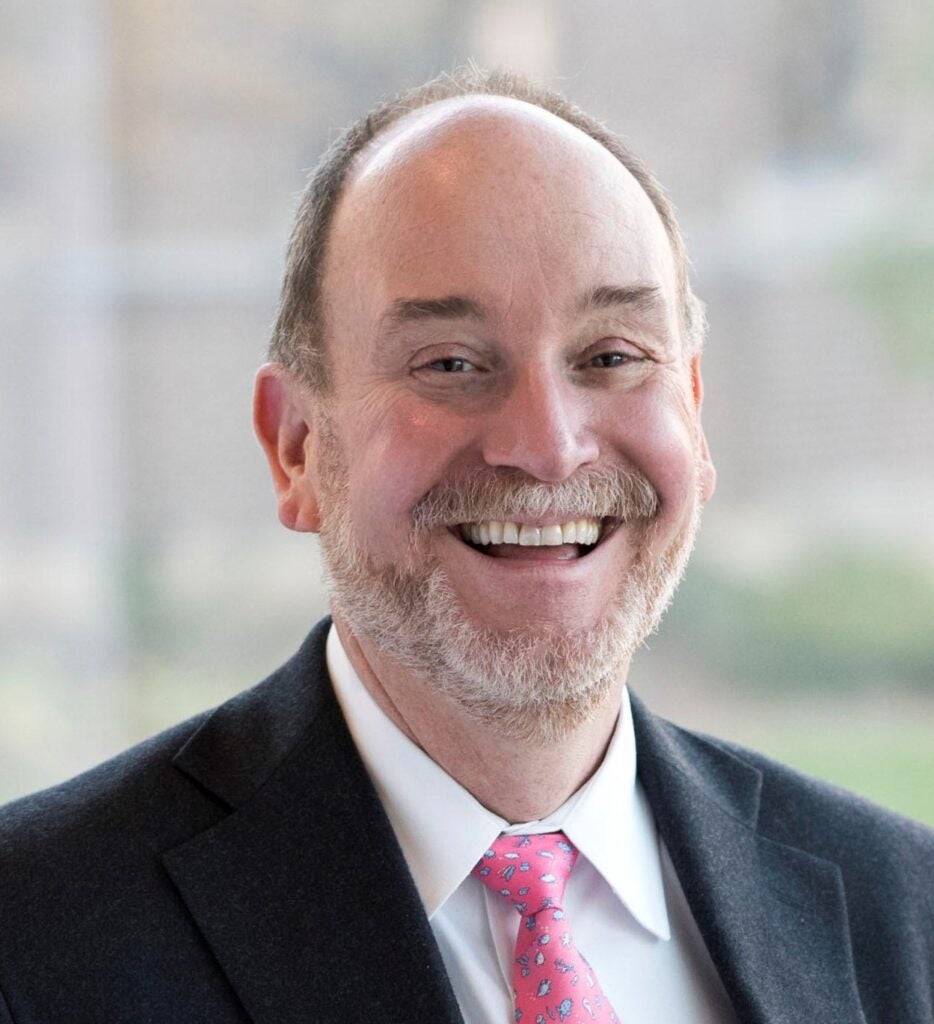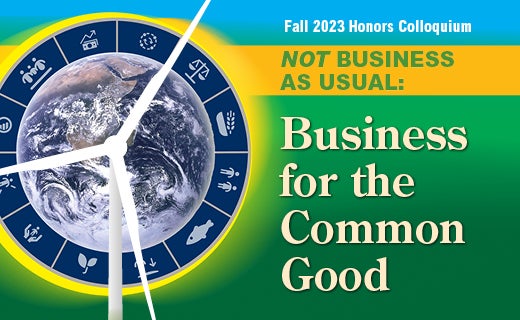KINGSTON, R.I. – Aug. 31, 2023 – The University of Rhode Island’s Honors Program will present “Not Business as Usual: Business for the Common Good” as its 60th anniversary Honors Colloquium. It will tell the nuanced story of contemporary American business, one that is not as black and white as many believe.
The free lecture series will feature nine lectures that will address using business tools and thinking to benefit society. The colloquium, which is also celebrating URI’s College of Business’ centennial, will also put the spotlight on URI Theatre’s production of “Marie Antoinette.” The story will be presented as an American tale of celebrity culture and irresponsible spending.

The lectures will be held most Tuesdays at 7 p.m. in Edwards Hall, starting Sept. 19 and running through Dec. 5. Video links to the lectures will be available on the Honors Colloquium website the day of each event.
The program’s coordinators are Doug Creed, Seray Ergene and Christy Ashley, all professors in the College of Business.
Ashley, the business college’s associate dean for undergraduate programs and professor of marketing, said the colloquium will take a big-picture approach.
“Often business is pictured as the villain or the angel. But it’s really neither. It has the ability to be on both sides,” Ashley said. “We’re not trying to say that business is on the side of the angels, but we are saying that businesses have processes and ways of thinking that can be applied to society’s grand challenges. And so what are the ways that we, through this colloquium, can make a difference?”
Expect frank discussions about the potential to use business thinking, while addressing its limitations, to help move the conversation forward and hopefully result in action. Speakers will address tackling climate change and inequalities, including racial and gender disparities while providing commentary on ways to motivate and enact systemic change.
Ashley said that “by applying some of the tools and thinking that we apply to growing profits or growing businesses to thinking about other impacts, we could see some important changes. But the colloquium will also address the limits to what business can do and what the needs are for other systems to be put in place to address those limits.”
She said the goal is to find some common ground. “If we have more conversations and reach agreements in some areas, we can reduce some of the polarization that prevents us from even having the conversation.”
Ashley said that businesses face tough decisions and tradeoffs. “They are looking at supply chains and environmental issues while also trying to make things affordable for their customers. They want to compete so they can protect peoples’ jobs. That’s what this colloquium is going to address, that business is not a black and white issue.”
Ergene has a bit of a different perspective.
“To me, scrutinizing the economy and the conduct of business that have benefited an ever smaller proportion of the society is the central component of the colloquium,” said Ergene, an assistant professor of management. “There is growing consensus among different members of the society that the current way of organizing the economy — including practices that engender and perpetuate racial and gender inequities and ecological degradation — are not only not serving the common good, but are actually undermining it.
“We are going through existential socio-ecological crises, and we all know industry is not innocent,” Ergene said. “In response, there is much discussion on sustainability and regeneration, stakeholder capitalism, social enterprises such as benefit corporations, and so on. In this colloquium, we aim to take a close look at these issues and explore fundamental tensions between business as usual and reimagining and organizing business for the common good. Ultimately, we’d like to think together with members of the Rhode Island community about what it takes to organize economic relations for the common good.”
Creed has a similar view of the issues.
“If we look at business over the last 40 years, business as usual has meant plutocracy increasingly dominates democracy, which has meant the vast majority of people are not getting a decent share of the economic pie,” Creed said. “In large part, “business as usual,” particularly the misplaced emphasis on shareholder value over the positive or negative impact on diverse communities of stakeholders, contributes to this trend, but the conduct of business could contribute to more equitable economic and societal outcomes. Our topics include gender inequality, racial inequality and just plain economic inequality, and why they appear to be part of the trajectory of our society. There is a lot of unhappiness about that.”
Creed added that “too many people have been presented with the false dichotomy: it’s either the economy or the environment. So there is this powerful misrepresentation that we can’t have a healthy environment and a healthy economy.”
The opening lecture on Tuesday, Sept. 19, will feature Jerry Davis on the topic of “Corporate Power, Business, and the Common Good?” Davis received his Ph.D. from Stanford University and is the Gilbert and Ruth Whitaker Professor of Business Administration and Professor of Sociology at the University of Michigan. He has published widely in management, sociology, and finance. His books include “Social Movements and Organization Theory” (2005); “Organizations and Organizing” (2007); “Managed by the Markets: How Finance Reshaped America” (2009); “Changing your Company from the Inside Out: A Guide for Social Intrapreneurs” (2015); “The Vanishing American Corporation” (2016); and “Taming Corporate Power in the 21st Century” (2022).
Davis’ research is broadly concerned with the effects of finance on society, changes in
the corporate economy, and new forms of organization. Recent writings examine how
ideas about corporate social responsibility have evolved to meet changes in the
structures and geographic footprint of multinational corporations; whether “shareholder capitalism” is still a viable model for economic development; how income inequality in an economy is related to corporate size and structure; why theories about organizations do (or do not) progress; how architecture shapes social networks and innovation in organizations; why stock markets spread to some countries and not others; and whether there exist viable organizational alternatives to shareholder-owned corporations in the United States.
See the full schedule and accompanying biographies of the speakers. The annual university-wide educational forum is free and open to the public. The annual lecture series brings experts to URI annually to examine issues of national and local relevance.

